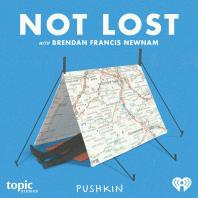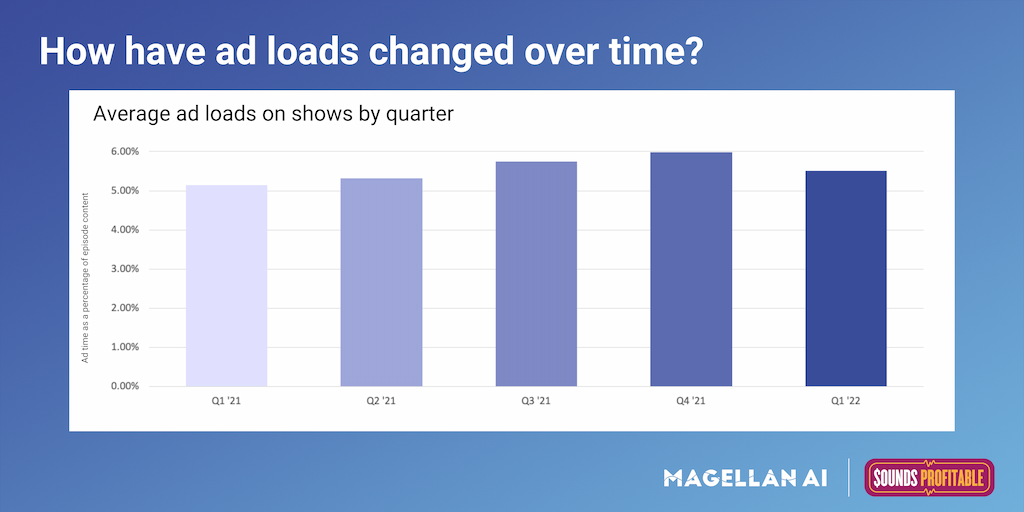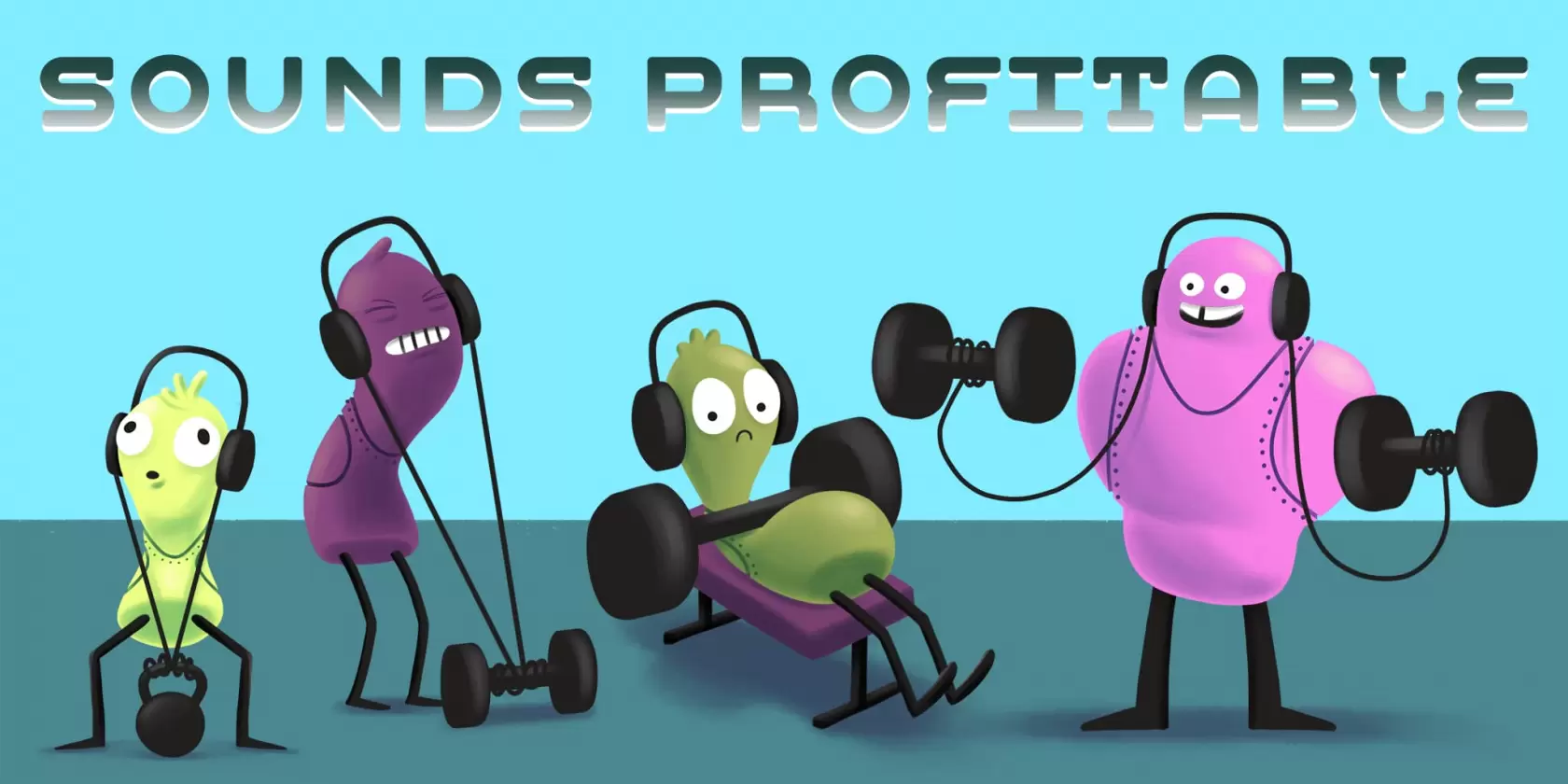Have you watched our latest Deep Dive with Triton Digital SVP of Marketing and Strategy Daryl Battaglia? It’s a detailed look at Triton’s comprehensive and accurate metrics tool and is absolutely worth a watch!
I’m such a big fan of disruptive cycles in business. There are very few times in an industry’s growth cycle where everyone involved can collectively question the path they were on and have the courage to push for something completely new.
Patterns develop based on client demand, driving competitors to offer similar products or services. Eventually, the industry collectively formalizes those demands into some sort of framework for anyone and everyone to build off of. As those frameworks become foundational to the industry, new ideas along those paths can sprout up for the next phase of growth, while completely new paths themselves become harder and harder to forge.
But sometimes, that disruption happens before the framework is written or the foundation is set. And in those moments, we have the rare opportunity to ask; Do we want to build that back up exactly like it was before? Or is it time to challenge it completely?
And in the exact same year that Nielsen’s methodology is being challenged as the standard in TV/CTV, Podcasting is given the same opportunity with analytics and attribution.
The Appeal of Prefix Analytics
Providing actionable reporting and analytics is hard work. Throughout my entire career in adtech, this was a pain point for even the most accomplished teams. No two clients want exactly the same thing, and few people on the product team have the opportunity to become expert users of the tools they’re building.
So when a third-party solution can offer the ability for a network or publisher to not only aggregate their data across multiple hosting platforms, or provide unique and actionable reporting views that fit their needs, but also enable them to easily and credibly share their numbers to potential advertisers, it’s a no brainer why prefix analytics became a mainstay of our industry.
Prefix analytics absolutely played a major part in podcasting growing to what it is today. By pushing back firmly against the argument that buying podcasting is “too difficult” through aggregating and presenting verified data for buyers to centrally approve instead of receiving screenshots, spreadsheets, and just trusting submitted numbers.
And while today the IAB reports 84% of all ads in 2021 were delivered through dynamic ad insertion, just two years earlier that number was 48%, making prefix analytics the strongest way to measure and attribute baked-in ads and podcast-to-podcast advertising.
But now, it’s time to think about moving forward.
Hosting Platforms Need To Step Up
Prefix analytics have thrived in podcasting due to hosting platforms setting different priorities. But as those priorities start to converge and competition between hosting platforms continues to heat up amid continued consolidation, I think it’s time that hosting platforms make a play for that space. So let’s break it down into a few digestible pieces.
Data Integrity
While hosting platforms and prefix analytics partners can both achieve IAB certification, they are not equal. Hosting platforms will always see the full request from the podcast player, along with the entire response they send back, whereas prefix analytics partners can only see the request.
No amount of “advanced algorithms and statistical analysis” will make up for having real-time access to server logs.
With IAB certification being more of a guideline than clear-cut rules, each partner will filter requests in different ways. Hosting platforms absolutely should be a publisher’s source of truth and sharing third-party data that doesn’t align with the core infrastructure you’ve chosen is difficult to defend.
Sharing Statistics
Every hosting platform should provide its publishers with an easy way to generate a static report and share a password-protected link directly to that report.
Publishers need better ways to share their data with ad buyers. But ad buyers also don’t want to maintain one login per hosting platform just to see download numbers. This area is ripe for third-party solutions built specifically for ad buyers, aggregating opted-in publisher data en-masse, like Triton Digital’s Podcast Metrics tool. The next wave of innovation in podcasting is going to heavily revolve around empowering ad buyers.
Campaign Attribution
I’m not coming for your baked-in ads, but I absolutely am coming for how you track those campaigns.
At this point in the podcast advertising game, an overwhelming majority of shows running ads are hosted on platforms that offer dynamic ad insertion. Some of those hosting platforms, like ART19, enable publishers to identify their baked-in ads as a campaign and assign tracking URLs to them. Others create a 1-second ad placement for the episodes, create a campaign for the ad with a silent audio file, and add the tracking that way.
By utilizing these methods, which can even work for podcast-to-podcast attribution, publishers are only sharing data when their hosting platform confirmed the ad was sent to the listener’s device. With prefix analytics, the URL is fired on every single download of every single episode of the show it’s applied to, which is quite a bit more data than most would want to share.
Wrapping It Up
I think 2022 has a lot of potential to be the year of the hosting platform.
There is so much opportunity with pure monetization plays that it’s easy to be distracted, but the stability of the hosting platform is what gives ad buyers confidence in the value of the download and ad delivery (impression). Publishers need to be confident in the partner they choose to represent their data and feel comfortable asking more of them, through feature requests and detailed feedback. If the hosting platform can’t support your needs, that’s a great opportunity to RFP new partners.
But the biggest improvement we could make is inviting ad buyers into this discussion. The publishers and hosting platforms that ask what ad buyers need outside of a specific campaign, to increase their spending in podcasting, will be what leads us to that $4 billion projection faster than 2024.
New Sponsors
Sounds Profitable exists thanks to the continued support of our amazing sponsors. Each sponsor receives one hour of consulting per month as a way to say thanks.
- Wondery, an Amazon company, is a premium podcast studio known for character-driven, binge-worthy stories including Dr. Death, The Shrink Next Door, Even the Rich and Business Wars, and distribution of hit partner shows SmartLess, My Favorite Murder, Morbid and How I Built This.
Want to learn more about sponsorship? Hit reply!
Rel’s Recs

Arielle Nissenblatt of EarBuds Podcast Collective this week has chosen Not Lost from Pushkin Industries, hosted by Omny Studio and measured by Chartable.
If you’re a Brendan Francis Newnam fan, you’ll love this show. If you miss the Dinner Party Download, Not Lost is basically a sequel. On the DPD, hosts Newnam and Rico Gagliano discussed etiquette, dinner party topics, food, and more. In this new show from Pushkin, Newnam and a friend visit a different city each episode and try to get invited to a dinner party (download). It’s the search for the dinner party (download). Listeners will feel like they’re hanging out alongside Newnam and friends as they explore these cities. The style of the show is more man-on-the-street, even a bit of found-tape, than it is narrative, which made me feel like I, too, was about to get a massage when Danielle Henderson entered a spa in episode one in Montreal.
Market Insights with Magellan AI

According to MediaPost, the average the ad load on TV shows is 22%. In comparison, the average ad load on podcasts is 5.6%, 4x less than that of TV. This week we analyzed ad loads starting in Q1′ 21 to see how they have changed over time.
In our analysis we found that the average ad load peaked in Q4′ 21, where they were just under 6%. We also found that in 2021 ad loads increased at a rate 0.3% quarter over quarter and dropped by 0.5% between Q4′ 21 and Q1′ 22. If historical trends are any indication of the future, we would expect to see ad loads rise at a similar rate throughout the rest of 2022.
Interested in more insights like this? Download the Q1’22 Podcast Advertising Benchmark Report for the full analysis.
Anatomy of an Ad with ThoughtLeaders

What makes a good podcast ad? You know it when you hear it, sure. But is there more to it? We’ve teamed up with ThoughtLeaders to break down what works, what doesn’t, and what it takes to make great ads.
This week’s Anatomy of an Ad breaks down a host-read for Green Chef presented by Dr. Meghan Sacks and Dr. Amy Shlosberg, hosts of the podcast Women and Crime.
Find out what worked well and what could be improved upon as you work to make your own ad reads better.


















































































































































































































